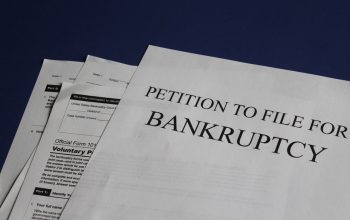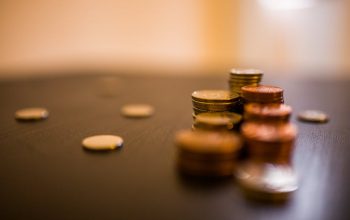Bankruptcy Restriction Orders - Bankruptcy is one particular means of dealing with problem debt, but the process itself places restrictions...
The scariest thing about becoming bankrupt is often the unknown, a lot of people don’t understand bankruptcy and the processes and this can make the process seem daunting. Sometimes when you get in debt bankruptcy is an option you may think about taking. Becoming bankrupt isn’t permanent so you may consider it as a way to clear your debts and start anew, although there are sometimes other alternative solutions depending on your situation.
Bankruptcy
Bankruptcy usually lasts for a year and is a legal status whereby the High Court declares you bankrupt and your none essential assets and excess income are used to pay off people you owe money to (creditors). At the end of the period of bankruptcy (a year or however long the status has been issued for) any remaining debts are discharged or cancelled. To become bankrupt you present the court a bankruptcy petition and they will then issue you with a bankruptcy order.
What happens when you become bankrupt
To file a bankruptcy petition you need to complete a number of forms, these will include information on why you wish to be made bankrupt and a list of all your assets and anyone whom you owe money (your creditors). It is important you include all details of your assets and debts as you will also need to make a sworn statement of its accuracy in front of a witness who will be a solicitor or a court officer. You also need to be aware of the fee’s issued when becoming bankrupt which will need to be paid when submitting the forms, these include;
• Court fees
• Administration fees
• Solicitors fees/witness fees A creditor can issue a bankruptcy petition against you, if you can avoid this then try to reach an arrangement as once bankruptcy proceedings have started you are legally obliged to comply.
You don’t always have to choose Bankruptcy
Although bankruptcy can be handled well and be a good solution to solving debt problems it can be distressing and isn’t the only option. It can be very hard giving up valuable assets and possessions to pay back creditors but in many cases alternatives are a better solution.
• Make an informal agreement with creditors – many people you owe money will be reasonable enough to let you sort out a manageable payment plan it is always worth getting in touch and seeing if this is the case before heading down the bankruptcy route.
• Individual Voluntary Arrangements (IVAs) – using an insolvency practitioner you negotiate repayment terms with creditors
• Administration orders – the Enforcement of Judgments Office(EJO) orders you to make payments, which the EJO then distributes amongst your creditors There are other options but the above are the top 3 solutions especially for people who have an income.
How bankruptcy affects you
Assets/Possessions
When you become bankrupt, the Official Receiver, or appointed trustee, can sell any of your non-essential assets to pay your creditors. Essential assets that will not be sold off include;
• Household items needed by yourself and your family- these are furniture, clothing, bedding etc
• Work equipment – such as tools, computer or transportation needed to make an income
• Your home – if you own your home you may need to sell the property and how much equity you have in the property, so if the mortgage is worth more than the value of the home and you are in negative equity then you will not need to sell
Earnings
When you become bankrupt the Official Receiver will look at your income and expenses, including household bills and you mortgage or rent. If you have a high disposable income aside from these expenses then you may be asked to make monthly payments from your earnings to pay your creditors, if not then they will make a decision on what is fair and you may not need to pay creditors out of your salary. If the Official Receiver decides you can afford to pay contributions from your regular earnings then you will be asked to sign an income payments agreement which will be a monthly sum and may last up to 3 years. If you do not sign this or do not pay then the Official Receiver may apply for a court order to force you to pay. Always tell the Official Receiver if your circumstances change so they can review these arrangements.
How long does bankruptcy last?
Bankruptcy usually lasts for one year. After this time, you’ll be ‘discharged’ from your bankruptcy and any money still owed will be cancelled out. If you co-operate fully with the Official Receiver and pay off debts quicker the term could be shorter and in very rare cases where the applicant is irresponsible or un-cooperative then it can last longer.
Moving Forward
Once you have been made bankrupt you will still need to pay any mortgage payments or rent, and if you accrue any debts after becoming bankrupt you will still need to pay these. You’ll still have to meet ongoing commitments such as rent or debts incurred after you become bankrupt. Always tell your trustee (either the Official Receiver or insolvency practitioner) about any new assets or income during your bankruptcy, you cannot use any credit cards or bank accounts (including building society accounts). Do not make payments direct to your creditors unless they were set up previously, such as child support or rent or mortgages. If you apply for any credit you must declare to the creditor that you are bankrupt if the sum is over £500. Once the bankruptcy proceedings are complete you can then take out a basic bank account. Details of your bankruptcy are kept on the insolvency register, the Enforcement of Judgements Office and in advertisements of bankruptcies in newspapers. Even after your bankruptcy period is over you may still find it hard to obtain credit as your credit information and credit score will be affected. To find out more about Bankruptcy, your situation and the best options for you get in touch with Lines Henry.



